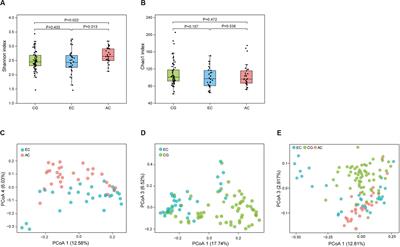EDITORIAL
Published on 14 Jul 2021
Editorial: Keep Calm and Care for Your Microbiota: The Role of H. pylori and Microbiota in Gastric Diseases
doi 10.3389/fmicb.2021.692472
- 1,388 views
- 1 citation
18k
Total downloads
70k
Total views and downloads
Select the journal/section where you want your idea to be submitted:
EDITORIAL
Published on 14 Jul 2021
REVIEW
Published on 19 Mar 2021

REVIEW
Published on 15 Mar 2021

REVIEW
Published on 04 Feb 2021

ORIGINAL RESEARCH
Published on 26 Jan 2021

ORIGINAL RESEARCH
Published on 31 Jul 2020

ORIGINAL RESEARCH
Published on 07 Jul 2020


Frontiers in Cellular and Infection Microbiology